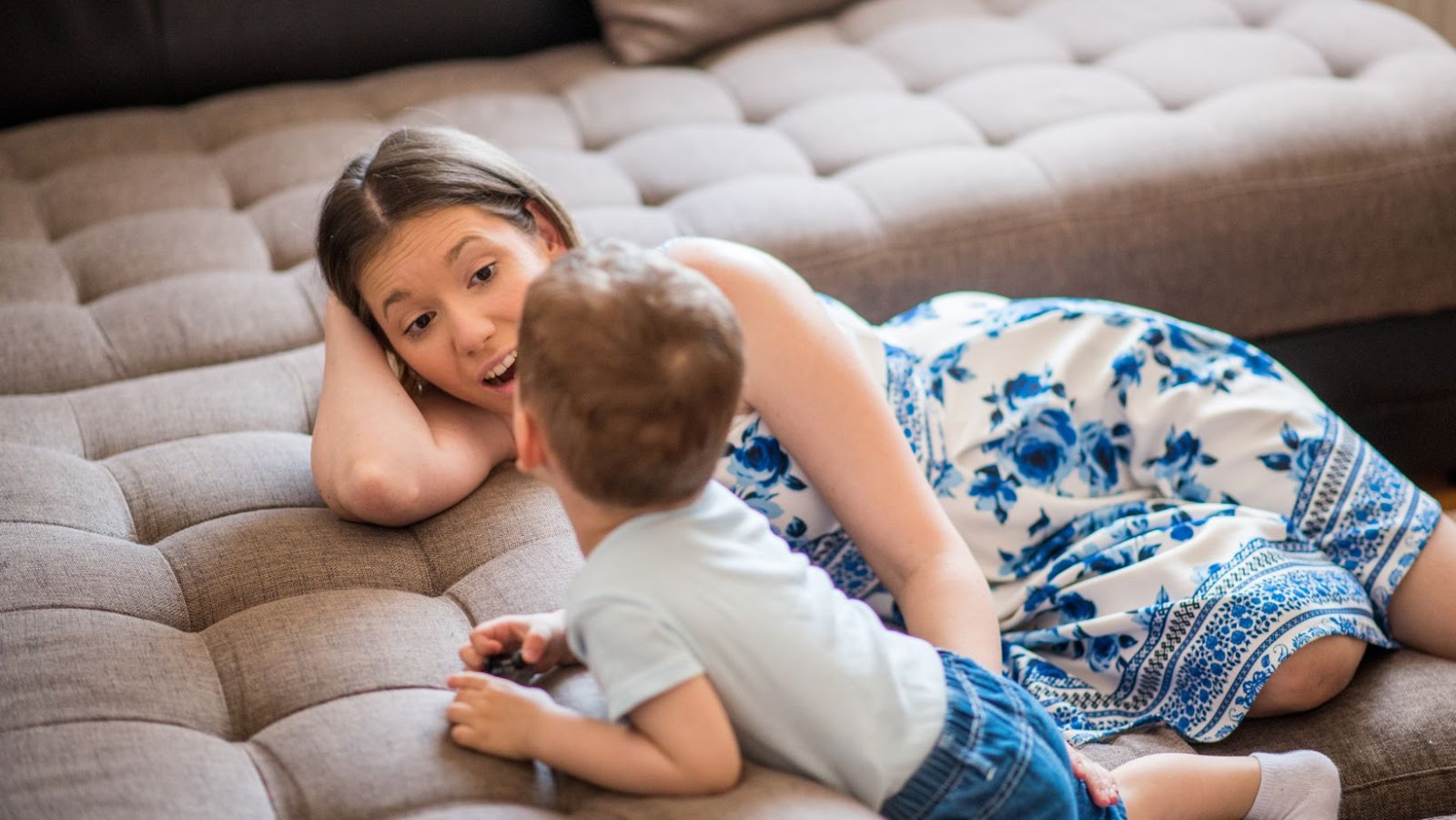Single parenting can have significant effects on a child’s overall development and well-being. Children raised by single parents tend to face unique challenges stemming from the lack of a co-parent in the household. As an expert writer, I will explore some of the common effects of single parenting on children and discuss potential solutions that can help mitigate their negative impacts.
One of the main ways that single parenting affects a child is through changes to their socioeconomic status. Single parents often struggle financially, as they become the sole breadwinner for the family. This can make it difficult for them to provide their children with the same level of financial support as families with two parents, leading to a higher risk of poverty and reduced access to resources. As a result, children may struggle with academic achievement, health issues, and lower self-esteem.
Another way that single parenting can affect a child is through the lack of emotional support and guidance that a second parent can provide. Single parents often have to juggle both work and family responsibilities, leaving less time for one-on-one time with their child. Without the emotional and psychological support that a second parent can provide, children may be more likely to struggle with mental health issues, behavioural problems, and lower levels of self-confidence. As a knowledgeable writer, I believe that it is crucial for single parents to establish strong support networks within their communities and seek out resources that can help them provide the best possible care for their children.

The Psychological Impact of Single Parenting on Children
Single parenting can have an impact on a child’s psychological and emotional well-being, especially if the child is young and unable to understand their parent’s situation fully. Here are some of the ways that single parenting can affect children’s mental health:
- Stress and Anxiety: Children from single-parent homes may experience higher levels of stress and anxiety as they often have to deal with the absence of their other parent. It’s not uncommon for them to worry about their single parent, which can lead to increased stress and anxiety.
- Behavioural Issues: Children may exhibit behavioural issues due to the stress of single parenting. They may become aggressive, act out, or withdraw from social situations, reflecting their anxiety and lack of stability.
- Low Self-Esteem: Children from single-parent homes may suffer from a lack of self-esteem. They may feel neglected and abandoned, which can lead to feelings of unworthiness and inadequacy.
- Academic Performance: Single parenting can sometimes lead to poor academic performance. Children may struggle to concentrate, lack motivation, or require additional support for their homework and development.
- Relationships: Children from single-parent homes may find it challenging to form and maintain relationships in later years. They may struggle to trust others romantically, feeling like they will face abandonment or loss.
It’s important to note that not all children from single-parent homes will experience these issues. Still, the potential is there for parents to be aware of and mitigate the effects by ensuring children receive emotional support and guidance and access professional counselling when necessary.
 The Effect of Single Parenting on Children’s Academic Performance
The Effect of Single Parenting on Children’s Academic Performance
Single parenting can have a substantial effect on a child’s academic performance. This effect can be linked to several factors, including socioeconomic status, parenting style, and parental involvement in the child’s education.
Studies have shown that children from single-parent families are more likely to experience financial hardships than those from two-parent families. This financial struggle can limit a child’s access to resources such as books, tutors, and technology that are critical to academic success. As a result, children from single-parent families may be at a disadvantage compared to their peers from two-parent families.
Parenting style also plays a significant role in a child’s academic performance. Single parents face unique challenges that can impact their parenting style, such as high stress and emotional exhaustion. As a result, some single parents may adopt a more authoritarian parenting style that focuses on discipline and control, which can negatively impact a child’s academic motivation and engagement.
Parental involvement in a child’s education can also be challenging for single parents, who may have limited time and resources to help with homework or attend parent-teacher conferences. In addition, single parents may face obstacles in communicating with teachers, navigating school policies, and participating in school events, which can limit their ability to advocate for their child’s education.
Despite these challenges, single-parent families can promote academic success through various strategies. For instance, they can build a support network of friends, family, or community resources that can provide emotional and practical support. They can also prioritise communication with their child’s teacher, participate in school activities that fit their schedule, and create a positive and supportive home environment that fosters a love of learning.
In conclusion, the effect of single parenting on a child’s academic performance can be significant, but it is not determinative. With the right support and strategies, children from single-parent families can excel academically and achieve their full potential.
 The Social Implications of Single Parenting for Children
The Social Implications of Single Parenting for Children
Growing up in a single-parent household can have a profound impact on a child’s development, including their social skills and overall well-being. Here are a few social implications of single parenting for children:
- Decreased social network: A single-parent family often has fewer adults to interact with, which can limit a child’s exposure to different perspectives and social experiences.
- Economic hardship: Single parenting often leads to economic hardship, which may result in a child experiencing a lack of basic necessities and reduced access to community resources. Children from low-income families are at a higher risk of social isolation and community disconnection, which can lead to mental health issues and poor academic performance.
- Increased responsibility: Children in single-parent households may assume more adult responsibilities, such as caring for younger siblings or managing household chores. This can lead to decreased time for recreational activities or socialising with peers, which can hinder the child’s ability to develop social skills.
- Higher rates of stress and mental health issues: Children in single-parent families experience more stress and have a higher risk of developing mental health issues. The additional burden of parental responsibilities, financial insecurity, and social isolation can cause anxiety, depression, and behavioural problems.
- Limited communication skills: Without a second parent to model social skills and provide a diverse range of social experiences, a child may struggle with communication and forming positive relationships.
It’s important to note that not all children in single-parent households have negative social outcomes. Many children develop resilience and adaptability in response to a challenging family situation. However, it is crucial for single parents to be aware of the potential impact of single parenting on their child’s social development and to provide opportunities for social interaction and support to mitigate any negative effects.
| Single-parent families | Increase from 12% in 1968 to 28% in 2019 in the US [1] |
| Poverty rates in single-parent families | Over 30% of single-parent families in the US live in poverty [2] |
| Mental health issues | Children from single-parent households are at a 50% higher risk of developing mental health issues [3] |
Overall, understanding how single parenting affects a child’s social development is important for parents, educators, and policymakers to develop strategies that provide adequate support and resources for single-parent families.
Sources
- U.S. Census Bureau, “Living Arrangements of Children Under 18 Years Old: 1960 to Present”
- National Women’s Law Center, “2017 Poverty Data Shows That Many Women and Families Still Struggle to Make Ends Meet”
- National Women’s Law Center, “The Resilience of Children in Single-Parent Families”
Navigating the Challenges of Single Parenting: As a single parent, it’s not easy to handle all the responsibilities of raising a child alone. Inevitably, children raised by single parents may face some challenges that can impact their development. In this article, we’ve examined how single-parent households may affect children in terms of emotional, social, and educational well-being.
As we’ve discussed, single parenting can lead to a range of difficulties for children. However, it’s essential to remember that these challenges do not necessarily guarantee negative outcomes. Children raised in single-parent households can thrive and be successful, given the right support and resources.
So what can you do as a single parent to help your child navigate these challenges? Here are some strategies:
-Build a strong support network: It’s crucial to surround yourself and your child with supportive friends and family who can offer emotional and practical support. Consider joining support groups where you can connect with other single parents who may be dealing with similar challenges.
-Communicate openly with your child: Encourage your child to share their feelings and thoughts with you. You can show that you are willing to listen to their concerns and offer your support.
-Set realistic expectations: Understand that you might not be able to do everything and ask for help when needed. It’s important to prioritise your child’s needs but also take care of yourself.
-Be a positive role model: Be a good role model for your child by modelling positive behaviours like resilience, determination, and responsibility.
Overall, single parenting can be challenging, but it doesn’t have to be a negative experience for your child. By following these strategies, you can help your child thrive and overcome any difficulties they may face.


 The Effect of Single Parenting on Children’s Academic Performance
The Effect of Single Parenting on Children’s Academic Performance The Social Implications of Single Parenting for Children
The Social Implications of Single Parenting for Children